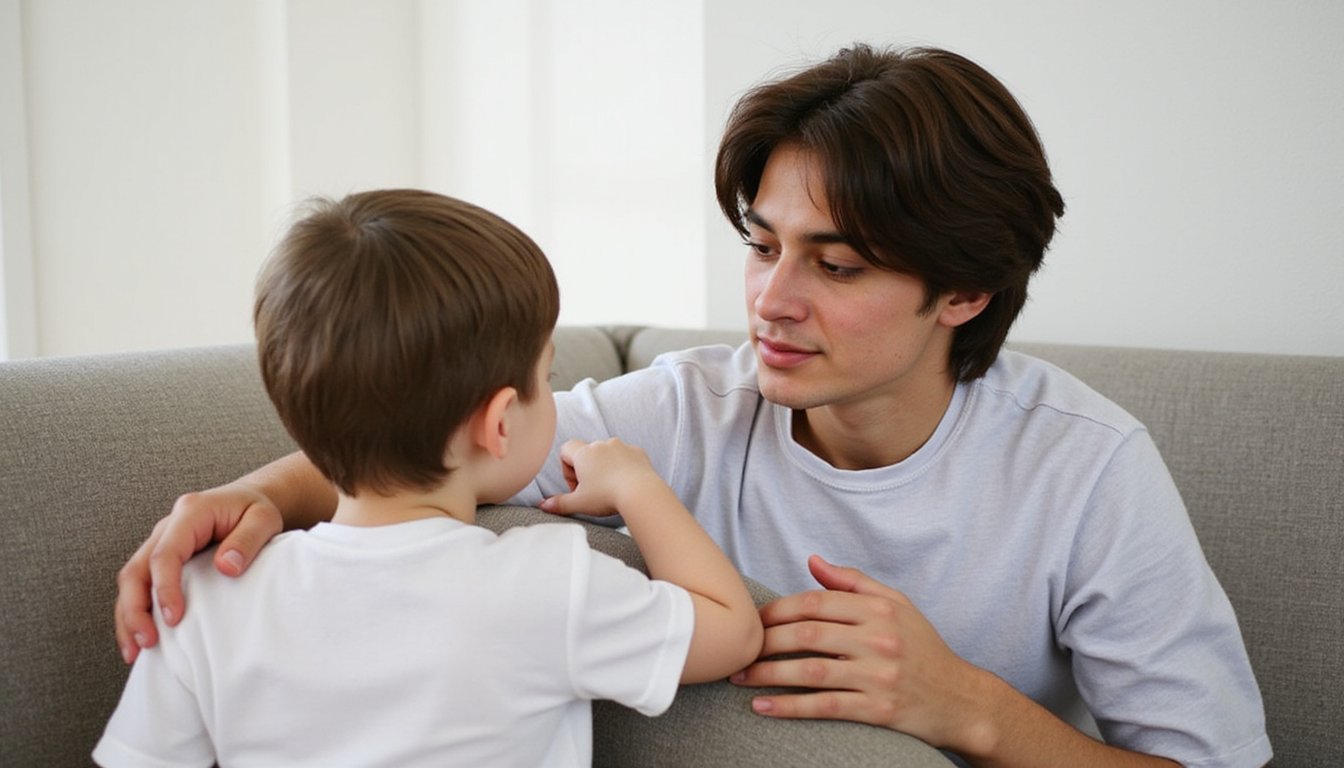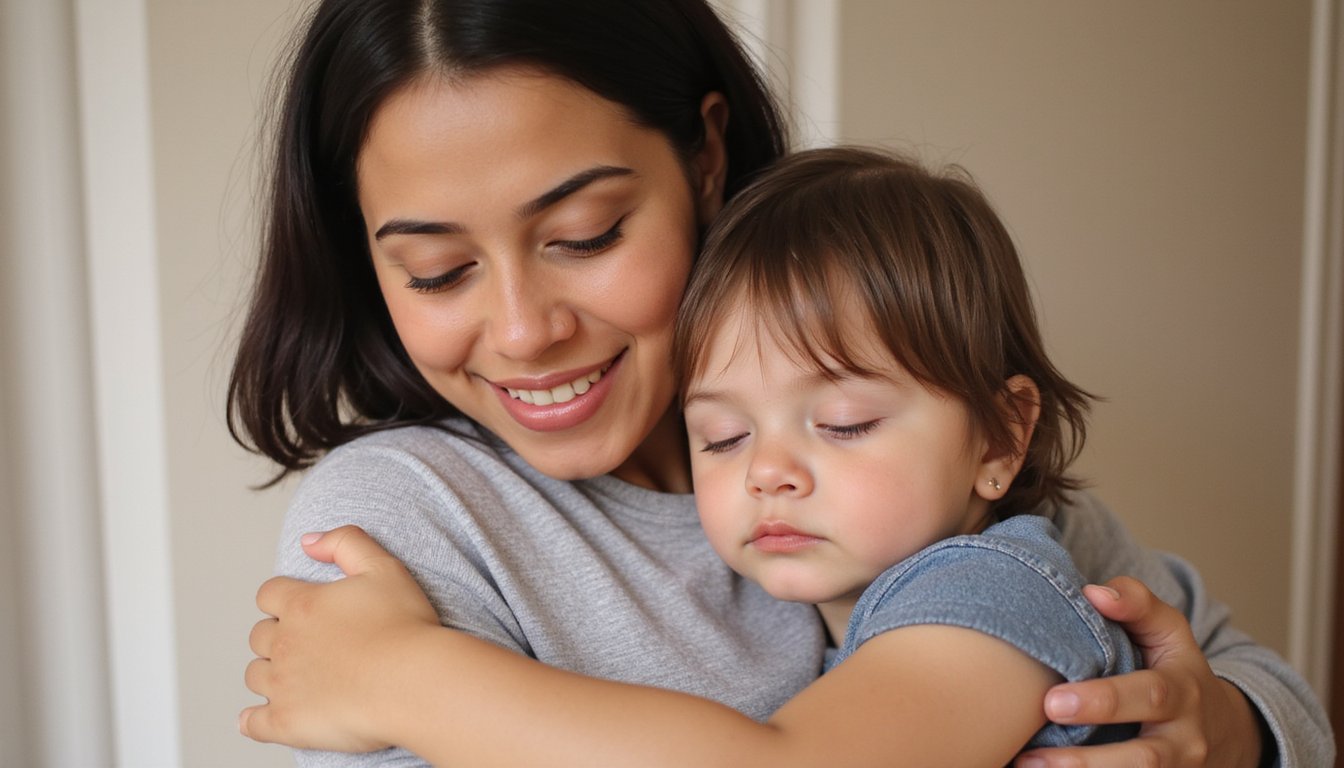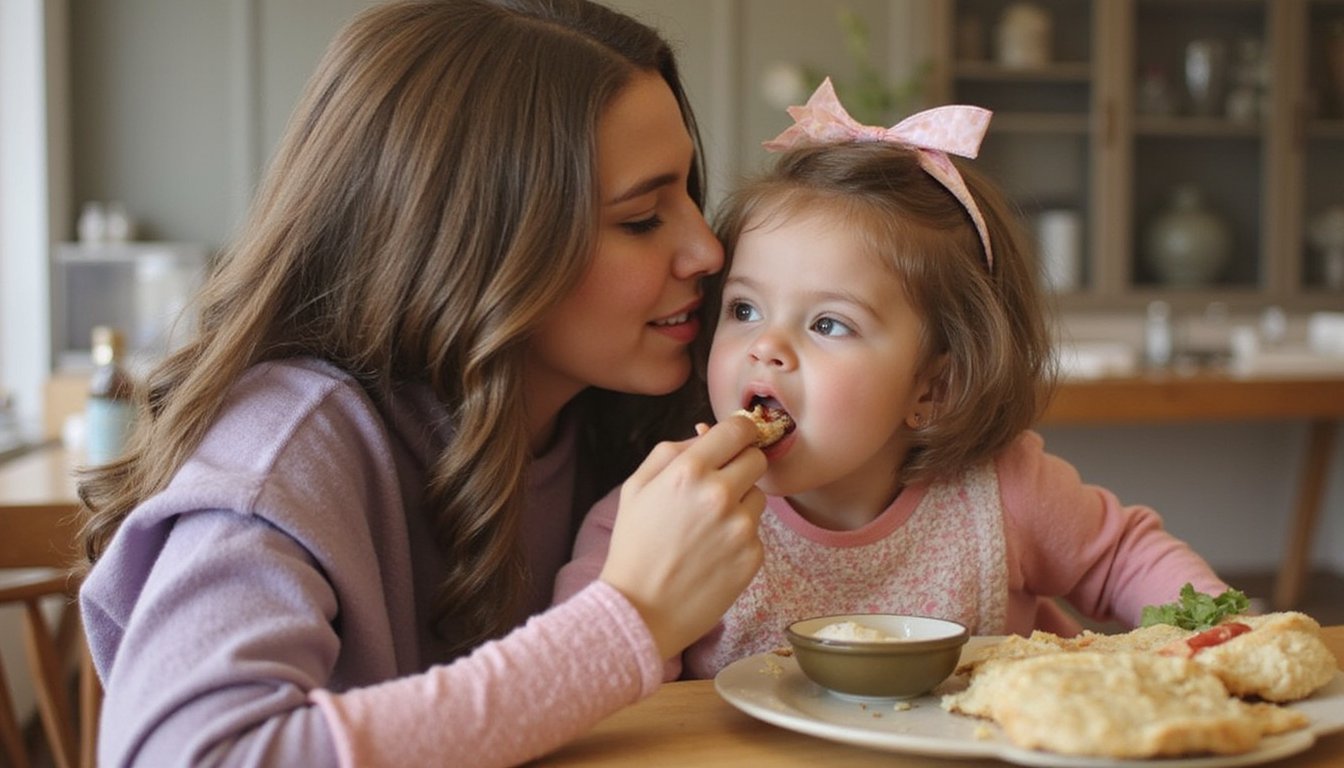Mental health profoundly shapes your family’s dynamics through a ripple effect that impacts parent-child bonds, communication patterns, and the broader household stability. When you’re struggling with anxiety or depression, it can lead to decreased emotional availability, heightened criticism, and controlling behaviors that affect your children’s psychological development. Your mental health challenges may create patterns of affectionless control parenting, which can trigger generational cycles of emotional difficulties. Understanding these connections will help you identify and transform destructive family patterns.
Understanding the Parent-Child Bond in Mental Health

While the parent-child relationship forms the cornerstone of family mental health, research consistently demonstrates that the quality of this bond profoundly impacts psychological outcomes across generations. You’ll find that higher parental care combined with lower psychological control creates ideal conditions for your child’s emotional development, effectively reducing the risk of intergenerational trauma transmission. Integrated treatment approaches have shown significant improvements in parent-child interactions and relationships.
Recent studies indicate that affectionless control parenting was reported by nearly half of youth with mental illness. The evidence points to specific factors that strengthen mental health outcomes: promoting autonomy, maintaining emotional availability, and strengthening reflective functioning in your parenting approach. When you provide warm, attuned care while encouraging independence, you’re creating a protective buffer against future psychological challenges. Research shows that this balanced approach particularly benefits children’s health-related quality of life, even when other risk factors are present in the family environment. Studies reveal that both mother and father relationships contribute equally to their children’s positive mental well-being throughout their lives.
The Impact of Depression on Family Relationships
Three critical symptoms emerge at the intersection of depression and family dynamics: excessive worry, feelings of worthlessness, and relationship inequality. Research shows that familial intimacy deficits can profoundly amplify depressive symptom triggers, creating a challenging cycle that affects every family member. Women who experience chronic diseases face heightened vulnerability to both family dysfunction and depression symptoms. Rural area residents show higher rates of depression compared to those living in urban settings.
Key findings demonstrate that:
- You’re 3.72 times more likely to experience depression when living in a dysfunctional family environment
- Poor communication and lack of shared activities directly contribute to the onset of depressive symptoms
- Low family cohesion creates a measurable impact on depression severity, with affected families scoring around 53 on depression scales
Studies indicate that adolescents from single-child families represent 70% of cases experiencing these family dynamic challenges. If you’re experiencing these challenges, evidence supports early intervention through family therapy, which can improve both family dynamics and depression outcomes. A supportive family atmosphere serves as a protective factor, reducing depression risk and severity.
Breaking the Cycle of Anxiety in Parenting
 If you’re an anxious parent, you’ll likely pass anxiety patterns to your children through both genetic predisposition and environmental modeling, with research showing a 2-7 times increased risk for children of anxious parents developing anxiety disorders. Early life stressors can significantly alter a child’s developing stress response systems, making them more vulnerable to anxiety disorders. You can recognize anxious parenting behaviors through excessive reassurance-seeking, heightened vigilance, and psychological control tactics like guilt induction or love withdrawal. Through evidence-based interventions such as family-focused CBT and conscious modeling of adaptive coping strategies, you can break this generational cycle while fostering healthier parent-child dynamics. Recent studies demonstrate that parent psychological control can significantly mediate the relationship between parent and child anxiety levels, making it a crucial target for therapeutic intervention. Creating a structured home environment with consistent routines and clear expectations can help reduce homework anxiety in elementary school children.
If you’re an anxious parent, you’ll likely pass anxiety patterns to your children through both genetic predisposition and environmental modeling, with research showing a 2-7 times increased risk for children of anxious parents developing anxiety disorders. Early life stressors can significantly alter a child’s developing stress response systems, making them more vulnerable to anxiety disorders. You can recognize anxious parenting behaviors through excessive reassurance-seeking, heightened vigilance, and psychological control tactics like guilt induction or love withdrawal. Through evidence-based interventions such as family-focused CBT and conscious modeling of adaptive coping strategies, you can break this generational cycle while fostering healthier parent-child dynamics. Recent studies demonstrate that parent psychological control can significantly mediate the relationship between parent and child anxiety levels, making it a crucial target for therapeutic intervention. Creating a structured home environment with consistent routines and clear expectations can help reduce homework anxiety in elementary school children.
Understanding Anxiety’s Ripple Effect
Parental anxiety creates a powerful ripple effect that extends far beyond individual symptoms, affecting entire family systems and future generations. Through mental health screenings and family counseling interventions, you’ll uncover how anxiety patterns ripple through households, impacting both immediate and long-term family dynamics. Research demonstrates that evidence-based interventions can significantly improve treatment quality and client satisfaction in family mental health services.
Consider these critical impacts of parental anxiety:
- Nearly 57% of parents experience burnout linked to anxious parenting behaviors, leading to decreased emotional availability
- Children exposed to high parental anxiety show heightened risks of depression, OCD, ADHD, and behavioral issues
- Almost half of working parents report their child’s mental health disrupts their work ability, creating financial instability
Understanding these ripple effects helps identify when and how to break destructive cycles, especially since children often mirror their parents’ stress management behaviors into adulthood. The challenge becomes even more complex when dual disorders affect approximately six million parents, requiring specialized support for both mental health and substance use recovery. Research shows that Black parents are significantly more impacted, with 37% having to modify their work arrangements due to their children’s mental health needs.
Recognizing Anxious Parenting Patterns
Breaking destructive cycles of anxiety in families begins with recognizing specific behavioral patterns that perpetuate intergenerational stress. You’ll often notice anxious parents displaying high levels of criticism, reduced warmth, and excessive control in their interactions with children. These behaviors, particularly when combined with affectionless control, directly contribute to increased anxiety in children. Parents diagnosed with social anxiety disorder show less emotional warmth during interactions with their children compared to parents with other anxiety disorders. Traditional Chinese culture considers girls’ anxiety as more acceptable, which means parents may exhibit more tolerant responses to daughters’ anxious behaviors.
When altering parenting behaviors, it’s fundamental to understand how your own anxiety manifests. Managing anxious triggers starts with recognizing threat-focused thinking patterns and avoidance behaviors you might unconsciously model. Research shows that your sensitivity to stress can lead to inconsistent emotional support and reactive parenting, creating bidirectional feedback loops that reinforce anxiety. Studies indicate that permissive parenting style creates the highest levels of anxiety in children compared to other parenting approaches. By identifying these patterns, you can take deliberate steps to modify your responses and interrupt the cycle of intergenerational anxiety transmission.
Breaking Generational Anxiety Cycles
While generational anxiety patterns often feel deeply entrenched, research-based interventions can effectively disrupt these cycles through trauma-informed approaches and targeted therapeutic support. By implementing adaptive parenting strategies and focusing on generational trauma healing, you’ll create healthier family dynamics and more resilient relationships.
Key interventions that break anxiety cycles include:
- Engaging in family therapy and narrative reconstruction to reframe trauma stories into growth-centered experiences
- Developing emotional regulation skills through targeted therapeutic programs that amplify self-awareness
- Participating in preventive interventions that address underlying mental health concerns while building parental resilience
Understanding your family history and implementing trauma-informed practices helps transform maladaptive patterns. When you combine professional support with conscious parenting choices, you’re actively preventing anxiety transmission to the next generation.
Creating Emotional Safety in Family Communication

Three core elements define emotionally safe family communication: open dialogue, consistent messaging, and empathic understanding. When you establish these foundations, you’ll reduce your children’s risk of anxiety and depression while fostering a secure environment that buffers against external stressors.
To create emotional safety, practice empathic listening by giving your full attention without judgment, and maintain consistent parenting practices that build predictability. You’ll need to avoid critical or authoritarian communication styles, as these can disrupt parent-child bonds and increase mental health risks. Research shows that conversation-oriented families experience lower rates of adolescent depression and psychological distress.
During times of heightened stress, such as health crises, your commitment to harmonious communication becomes even more pivotal in protecting your children’s emotional well-being.
Building Resilience Through Supportive Family Structures
Building family resilience demands a comprehensive understanding of both structural and psychological factors that shape adaptive family functioning. Research indicates that multifaceted resilience factors, including socioeconomic stability and supportive family relationships, directly influence how effectively families adapt to challenges.
Key elements that reinforce family resilience include:
- Authoritative parenting practices that combine clear expectations with emotional warmth
- Adaptive coping strategies focused on problem-solving and emotion regulation
- Integration of family members into mental health treatment processes
You’ll find that family satisfaction serves as a protective buffer, with cohesive parent-child relationships predicting higher resilience levels. By nurturing positive communication and implementing resourceful planning strategies, you’re better equipped to manage chronic stress while maintaining healthy family dynamics. Remember that resilience mediates between family satisfaction and reduced anxiety and depression in adolescents.
Recognizing Signs of Mental Health Strain in Parents
The early detection of parental mental health strain plays an essential role in maintaining healthy family dynamics. As a parent, developing parental self-awareness helps you recognize emerging signs before they profoundly impact your family. Watch for persistent mood changes, behavioral shifts, and physical symptoms that last more than two weeks.
| Warning Signs | Impact on Family | Self-Care Steps |
|---|---|---|
| Mood swings | Strained relationships | Daily meditation |
| Social withdrawal | Children’s anxiety | Regular exercise |
| Sleep changes | Academic decline | Support groups |
| Concentration issues | Role reversals | Professional help |
| Emotional numbness | Family isolation | Set boundaries |
When you notice these signs, prioritize parental self-care immediately. Understanding that mental health affects your parenting capacity isn’t a sign of weakness; it’s a crucial step in maintaining family well-being. Early intervention can prevent the escalation of symptoms and protect your children’s developmental trajectory.
Strengthening Family Bonds During Mental Health Challenges
Building strong family bonds during mental health challenges requires consistent, open communication and active support among family members. You’ll find that establishing regular check-ins and shared activities creates opportunities for emotional connection while fostering resilience in both parents and children. When you prioritize constructive family time and honest dialogue, you’re developing protective factors that help buffer against mental health stressors and strengthen your collective ability to navigate difficulties together.
Building Communication Through Support
When families face mental health challenges, establishing strong communication channels becomes essential for maintaining healthy relationships and fostering emotional support. Professional counseling resources and community support programs can provide structured guidance for developing effective communication strategies.
To build supportive communication within your family:
- Create safe, judgment-free spaces for open dialogue, setting clear ground rules that encourage respectful sharing without interruption
- Practice active listening techniques, including reflective responses and emotional validation, to demonstrate genuine engagement and understanding
- Implement boundary-setting practices that respect each family member’s autonomy while maintaining consistent opportunities for meaningful connection
Creating Resilient Family Connections
Strong family bonds serve as a protective shield against mental health challenges, creating resilience that sustains both individual and collective well-being. Through cultivating family cohesion, you’ll find that shared routines, celebrations, and daily activities strengthen emotional connections and reduce stress levels among family members.
Supporting family resilience involves establishing predictable schedules, engaging in meaningful traditions, and practicing responsive emotional support. You’ll want to focus on creating structured environments where each family member can express feelings safely while learning effective coping strategies. Teaching children to label emotions and model adaptive responses builds a foundation for long-term mental health stability. When you prioritize quality time together and maintain consistent family routines, you’re fostering an environment that promotes psychological well-being and strengthens your family’s ability to navigate challenges collectively.
The Role of Healthy Boundaries in Family Wellness
The establishment of healthy boundaries serves as a cornerstone of family mental wellness, creating essential frameworks for emotional safety and interpersonal respect. When you implement clear emotional boundaries, you’ll foster autonomy development while protecting against burnout and emotional exhaustion.
Research demonstrates three critical impacts of healthy boundaries:
- They reduce emotional reactivity and strengthen resilience during stressful situations
- They prevent unhealthy enmeshment that can blur individual identities
- They promote stable, harmonious interactions that augment trust and communication
You’ll find that consistent boundary-setting leads to improved family dynamics, with studies showing only 14% of people naturally excel at this skill. By maintaining clear limits and expectations, you’re creating a foundation for emotional regulation and sustainable relationships that support long-term mental health within your family unit.
Navigating Co-Parenting With Mental Health Considerations
Building on the foundation of healthy boundaries, successful co-parenting requires heightened attention to mental health dynamics between separated parents. When you’re traversing shared custody challenges, understanding how mental health affects co-parenting communication becomes pivotal for both parental and child well-being.
| Impact Area | High Conflict | Low Conflict |
|---|---|---|
| Parent Health | Depression & Anxiety | Better Resilience |
| Child Outcomes | Behavioral Issues | Positive Development |
| Family Dynamic | Increased Stress | Stable Environment |
Research shows your mental health directly influences co-parenting effectiveness. When you’re experiencing depression or anxiety, it can create a cycle of increased conflict that impacts your children’s emotional development. Consider seeking early intervention through co-parenting therapy, as studies demonstrate improved outcomes for both parents and children up to one year post-intervention, particularly in reducing negative emotionality and behavioral issues.
Fostering Positive Mental Health Practices at Home
Creating positive mental health practices at home starts with intentional, daily actions that foster emotional well-being for every family member. By implementing mindful coping strategies and consistent self care routines, you’ll establish a foundation for lasting emotional resilience.
Key practices to prioritize include:
- Establish tech-free family time for meaningful conversations, active listening, and emotional expression through activities like shared meals or guided discussions
- Incorporate regular physical activities and stress-relief rituals, such as family walks, meditation, or breathing exercises
- Practice daily gratitude exercises and positive affirmations while modeling healthy responses to life’s challenges
These evidence-based approaches create a nurturing environment where children learn essential emotional regulation skills and develop a growth mindset, culminating in strengthened family mental health.
Frequently Asked Questions
How Can Siblings Support Each Other When a Parent Has Mental Illness?
You can support each other by fostering mutual understanding through open discussions about your shared experiences and feelings. Create safe spaces for emotional validation by acknowledging each other’s struggles and concerns. Join peer support groups together to learn coping strategies and share caregiving responsibilities. You’ll benefit from establishing clear boundaries while maintaining regular check-ins with your siblings. Don’t hesitate to seek professional guidance together when needed.
What Role Do Grandparents Play in Supporting Families With Mental Health Challenges?
Grandparents can serve as essential multigenerational support systems when your family faces mental health challenges. They’ll often provide emotional backing and practical childcare that reduces parental stress and depression. You’ll find that grandparent empowerment strategies, especially from maternal grandmothers, can buffer children against negative impacts of parental mental illness. When you’re struggling, they can become secondary attachment figures for your children and strengthen comprehensive family resilience through their active involvement.
How Does Parental Mental Health Affect Children’s Academic Performance and Relationships?
When your parents struggle with mental health, you’re likely to face academic challenges and relationship difficulties. You may experience impaired emotional regulation and attention problems that affect your school performance. Your ability to develop effective coping strategies can be compromised, leading to social withdrawal or behavioral issues. You’ll often find it harder to maintain peer relationships and participate in class, especially if there’s ongoing parental mental illness affecting your home environment.
When Should Children Be Told About Their Parent’s Mental Health Condition?
You should initiate appropriate disclosure timing when your child shows maturity to understand, typically during early youth, but before any crisis occurs. Don’t wait too long; early conversations help reduce stigma and promote better coping skills. Use open communication strategies that match your child’s developmental stage, providing clear, stage-appropriate information. Remember, it’s better to have ongoing dialogue rather than a single conversation, allowing your child to process information gradually and ask questions over time.
How Can Working Parents Balance Mental Health Treatment With Childcare Responsibilities?
You can balance mental health treatment and childcare through effective time management and stress reduction strategies. Take advantage of workplace flexibility and remote options to schedule therapy during convenient hours. Don’t hesitate to use employer-provided mental health resources and telehealth services. Share childcare responsibilities with your partner or family members, and set clear boundaries at work. Prioritize regular appointments and utilize employer assistance programs to maintain consistent care while managing parenting duties.





